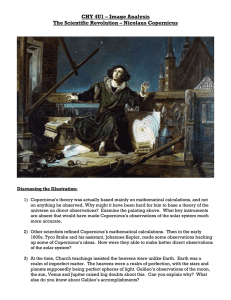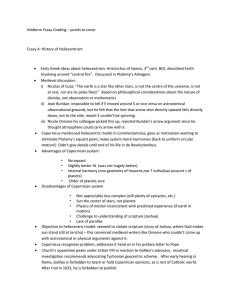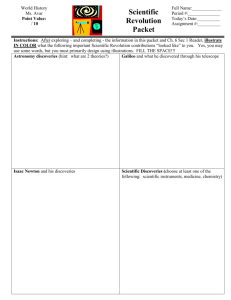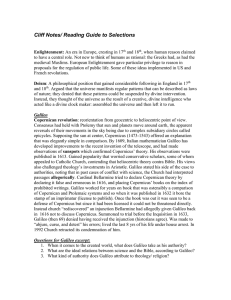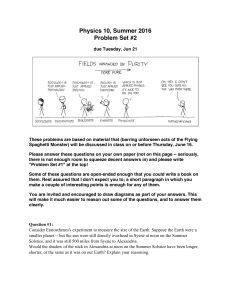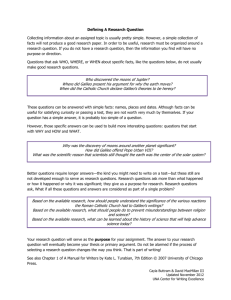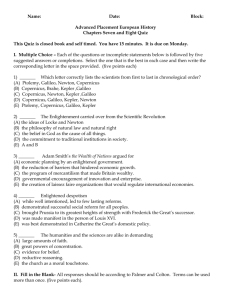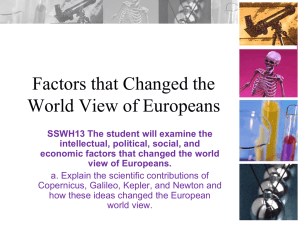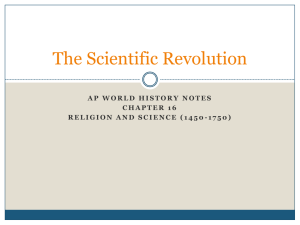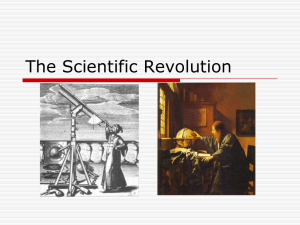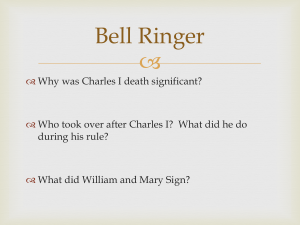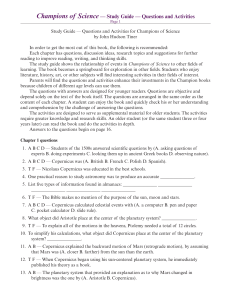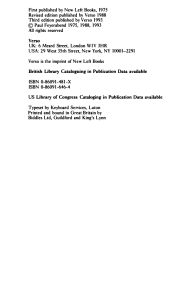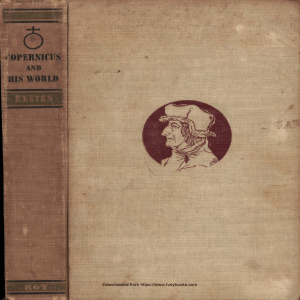Physics Seminar Peter Brown The Copernican Revolution:
advertisement
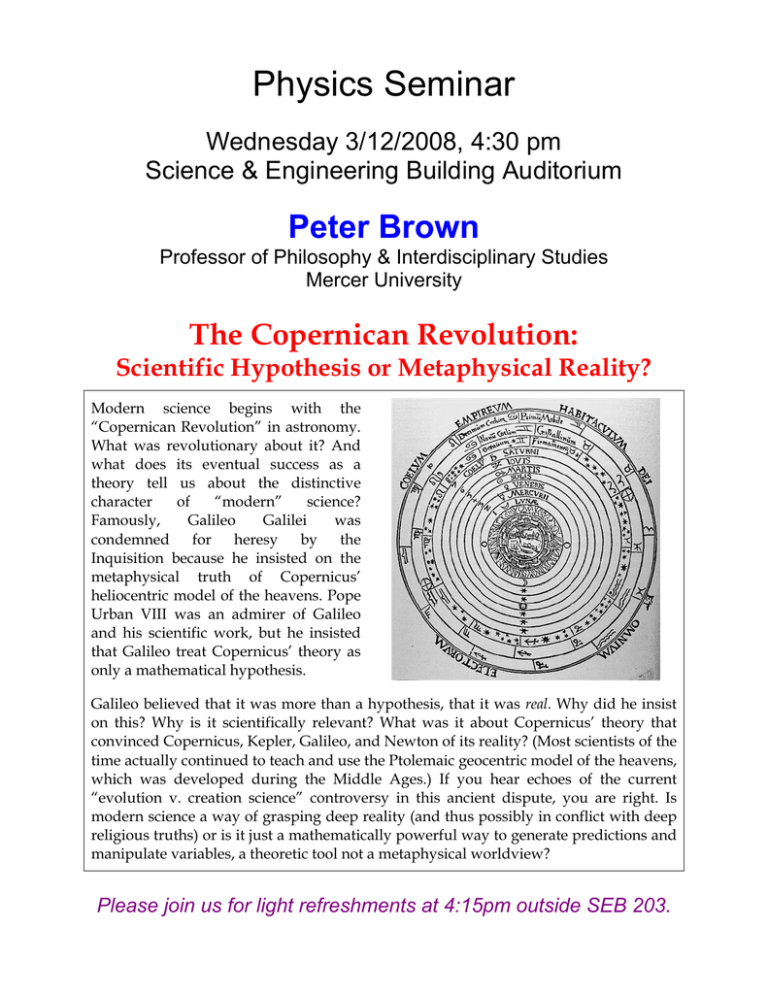
Physics Seminar Wednesday 3/12/2008, 4:30 pm Science & Engineering Building Auditorium Peter Brown Professor of Philosophy & Interdisciplinary Studies Mercer University The Copernican Revolution: Scientific Hypothesis or Metaphysical Reality? Modern science begins with the “Copernican Revolution” in astronomy. What was revolutionary about it? And what does its eventual success as a theory tell us about the distinctive character of “modern” science? Famously, Galileo Galilei was condemned for heresy by the Inquisition because he insisted on the metaphysical truth of Copernicus’ heliocentric model of the heavens. Pope Urban VIII was an admirer of Galileo and his scientific work, but he insisted that Galileo treat Copernicus’ theory as only a mathematical hypothesis. Galileo believed that it was more than a hypothesis, that it was real. Why did he insist on this? Why is it scientifically relevant? What was it about Copernicus’ theory that convinced Copernicus, Kepler, Galileo, and Newton of its reality? (Most scientists of the time actually continued to teach and use the Ptolemaic geocentric model of the heavens, which was developed during the Middle Ages.) If you hear echoes of the current “evolution v. creation science” controversy in this ancient dispute, you are right. Is modern science a way of grasping deep reality (and thus possibly in conflict with deep religious truths) or is it just a mathematically powerful way to generate predictions and manipulate variables, a theoretic tool not a metaphysical worldview? Please join us for light refreshments at 4:15pm outside SEB 203.
